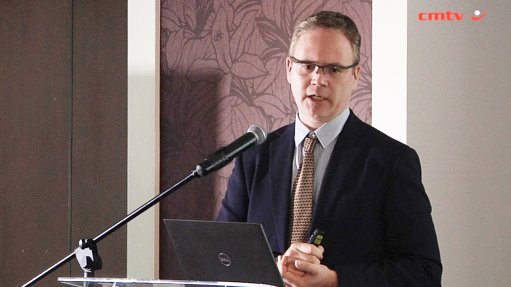
Human Sciences Research Council research director Dr Ben Roberts
Human Sciences Research Council (HSRC) research director Dr Ben Roberts states that the level of trust in the Independent Electoral Commission of South Africa (IEC) is relatively higher when compared with other institutions.
Roberts was speaking during an IEC research seminar, Safeguarding Democracy in the Age of Growing Mistrust, in Johannesburg.
Between 2009 and 2021, the IEC commissioned numerous election-related surveys to gauge public perceptions, trends, attitudes and interests of South African voters.
These studies were conducted by the HSRC and it was commissioned by the IEC to undertake an analysis of the long-term trends in all election-related surveys conducted to date.
Roberts highlighted that confidence in the IEC was strongly linked to evaluations of democratic performance, as 78% of voters who were ‘very satisfied’ with democracy showed trust in the IEC.
This declines sharply as views on democracy become more critical, he pointed out.
“The Commission is evaluated favourably compared to other core political institutions – national and local government, political parties – but not immune to the declining tendency seen with other institutions,” he said.
Roberts said there was an appreciable decline in trust in core political institutions, especially national government and Parliament, according to a survey between 1998 and 2012.
There are also signs of diminishing trust dated back to the mid-2000s and intensifying during the 2010s.
Roberts said some elements of government performance were positively evaluated, with only a recent decline in social grant satisfaction.
There was a decline in satisfaction with certain household services such as electricity, water and sanitation.
There is persistent concern over employment creation – with less than 20% of people satisfied over last 20 years – and over anti-corruption and crime reduction efforts.
The survey also showed that South Africans were not happy with the economic situation in the country.
“But there really was a sharp decline between 2010 and 2017, falling from around 35% satisfied to 15%. It has recovered slightly which is a little surprising given the Covid-19 experience but we do think that perhaps the signs will turn between 2010 and 2021,” Roberts said.
However, he pointed out that South Africans are resolutely proud citizens, comparatively. Yet, there are clear signs of a downturn since the mid-2010s, recent figures are the lowest recorded over past 20 years.
“The Commission will harness the positive elements arising from these longitudinal surveys while working with all the actors in the political system to address the negative perceptions about electoral democracy. Furthermore, identified challenges which are within the remit of the Commission will be factored into the electoral programme ahead of the 2024 elections,” said IEC chief electoral officer Sy Mamabolo.